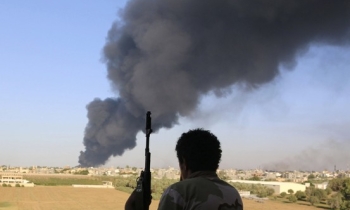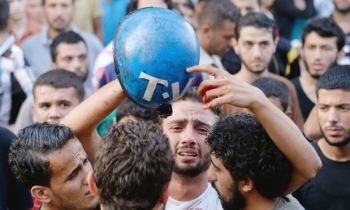The Venezuelan government’s decision not to renew a television broadcasting license is being seen as a serious setback for freedom of expression in Venezuela. Radio Caracas Television (RCTV), the country’s oldest private channel, will have to close shop when its licence expires on May 27, 2007.
President Hugo Chávez has repeatedly threatened to cancel RCTV’s licence ever since he accused it of supporting an April 2002 coup attempt. On December 28, 2006, he announced during a military ceremony that the order not to renew the channel’s 20-year license had already been drafted.
“President Hugo Chávez is misusing the state’s regulatory authority to punish a media outlet for its criticism of the government,” said José Miguel Vivanco, Americas director at Human Rights Watch (HRW). “The move to shut down RCTV is a serious blow to freedom of expression in Venezuela.”
“For there to be true media freedom in Venezuela, there must be a plurality of voices, both on the airwaves and in newsrooms,” said International Federation of Journalists (IFJ) General Secretary Aidan White. “Shutting down a broadcaster without due process and threatening to curb free trades unionism could lead to more attacks on fundamental rights.”
“If RCTV loses its licence because it is part of the opposition, it would be a clear violation of editorial pluralism,” Reporters sans Fontières (RSF) has said. "We are aware of RCTV’s stance during the April 2002 coup attempt, but why threaten to rescind its licence more than four and a half years later? At the same time, does the development of community media require depriving commercial broadcast media of their frequencies? We call on the Venezuelan government to review its position.”
Of the three commercial stations accessible in all parts of Venezuela, only RCTV has remained strongly critical of the government. The other two —Venevision and Televen— were themselves accused of supporting the attempted coup and subsequent anti–government protests. But both have since removed virtually all content critical of the government from their programming.
Venevision’s license is also due for renewal on May 27, but the government has remained silent about the channel’s future, in contrast to its repeated public attacks on RCTV.
Officials have defended the decision by pointing out that the government is merely exercising its right not to renew RCTV’s broadcasting license when it expires. However, no procedure was established to enable RCTV to present evidence and arguments in its favor; the criteria on which the decision was based were not established clearly beforehand, nor was there any application or selection process allowing RCTV to submit an application for continuation of its concession, a Human Rights Watch statement said.
In March 2007 the government published details of its case —a 360–page “White Book on RCTV”— which included pages of allegations against the station, some of them based on investigations by the government broadcasting authority CONATEL. The report was issued months after Chávez made his announcement and does not address the station’s replies to CONATEL’s investigation.
The White Book accused RCTV of “inciting rebellion,” showing “lack of respect for authorities and institutions,” breaking the laws protecting minors, engaging in monopolistic practices, and failing to pay taxes. However, it does not cite a single final judicial or administrative ruling establishing that the channel had in fact committed any of these alleged offences during its 20–year contract, HRW pointed out. No one from the channel has been convicted for their alleged complicity in the attempted coup.
Government officials have announced that RCTV will be replaced by a public service channel open to community groups and independent producers and without editorial control by the state or government programming.
The government has not made a clear case why RCTV must be taken off the air to set up the new channel, HRW said. The government has frequencies at its disposal on both VHF and UHF wavebands in many parts of Venezuela. It has already used UHF frequencies to successfully install a nationwide education and cultural channel, Vive TV.
In a letter to Chavez, White urged the President “to make clear Venezuela’s continued commitment to its obligations under international law regarding trade union freedom and to reassure journalists and media staff in your country that their right to organise is and will remain protected. “The government’s proposal to democratize the airwaves sounds great in theory, but shutting down broadcasters for their political views is not the way to do it,” said Vivanco.
“There has been no warning or consultation with the workforce, which suggests that the closure of RCTV, without independent scrutiny of its actions, will be a disaster both for press freedom and for thousands of journalists, media staff and their families,” said White. “The protest over this action by unions shows why independent trade unions are vital to Venezuelan media and to society as a whole.”









